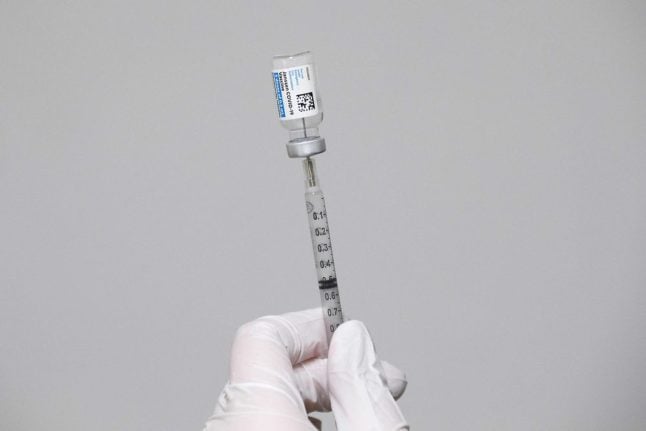A decision by the Danish Health Authority on whether it will also withdraw the Johnson & Johnson vaccine from the national Covid-19 programme, as it did with AstraZeneca, will be made by next week. The authority confirmed the scheduled announcement in a statement early on Wednesday.
That comes after the European Medicines Agency (EMA) on Tuesday said it had concluded, based on initial investigations, a possible link between the J&J vaccine and rare cases of blood clots combined with low platelet levels.
The regulator recommended adding a warning to the vaccine’s product label and said the benefits of the one-dose shot outweigh its risks.
The J&J vaccine is yet to be used in Denmark after the company last week announced it would delay the rollout of its vaccine in Europe due to concerns over rare potential side effects detected in the United States.
READ ALSO: European countries face slower vaccination as Johnson & Johnson delays rollout
But the European rollout was recommenced on Tuesday following the EMA’s statement, with Johnson & Johnson agreeing to add a product warning on packaging as recommended by the regulator.
The US is expected to announce its decision on Friday. The White House chief medical advisor Anthony Fauci has said that he expects the vaccine to be reinstated in some form.
The Danish Health Authority appears to be taking a cautious line and has said it will take the various conclusions into account in forming its own decision.
“Before we can make a final decision on whether we can put the vaccine into use in Denmark and whether we must have special conditions and target groups for its use, we will look more closely at the documentation from the EMA and from the American medicines agency and health authorities,” Danish Health Authority director Søren Brostrøm said.
“We will then discuss this with our expert group, whom we will also ask to point out whether we need to conduct additional medical studies in Denmark in connection to the possible use of the Janssen vaccine,” he said, referring to the J&J inoculation by the name of the subsidiary company which produces it.
Denmark received 40,000 doses of the vaccine last week in a planned shipment. Unlike other vaccines currently in use, it requires a single dose rather than two.



 Please whitelist us to continue reading.
Please whitelist us to continue reading.
Member comments